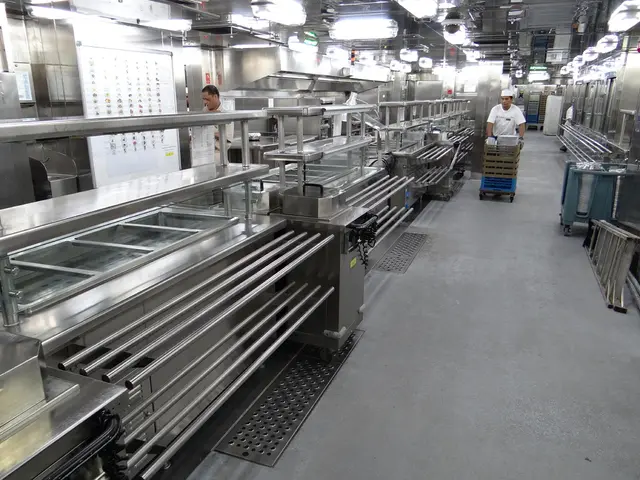Large-scale modifications imminent at 2,400 supermarket outlets, sparking debates among consumers.
Co-op Announces Nationwide Transition to Electronic Shelf Labels
Co-op, one of the UK's largest supermarket chains, is set to revolutionize its 2,300-plus stores by installing digital labels, a move that is unlikely to go unnoticed by shoppers. The switch from paper tags to electronic ones is currently underway, with 340 stores already adopting the new system. By the end of 2026, Co-op aims to complete the rollout across all its stores, making it the latest retailer to join the growing trend of digitalization in the industry.
The digital labels are being developed and supplied by VusionGroup, a company with previous experience working with Asda. These new tags are designed to provide comprehensive information about a product, including allergen details, nutritional facts, country of origin, and special offers. According to Co-op's Head of Operations, Steven Logue, the move reflects the retailer's commitment to harnessing innovative technology to enhance operations and meet customer demands for convenience and transparency.
While the new labels are anticipated to improve the shopping experience for many, the transition may not be universally welcomed. Concerns have been raised regarding the possibility of dynamic pricing, a practice that involves altering prices based on factors such as customer demand. Some believe this could make it harder for customers to spot discounts, as the yellow, orange, or red paper stickers commonly used to signify sales may no longer be as visible.
Despite these concerns, Co-op expressed confidence that the new labels would effectively reduce paper waste and offer a more transparent shopping experience overall. Other supermarkets have already implemented similar strategies, with the likes of Lidl, Aldi, and Asda (currently testing electronic labels in a Manchester store) also embracing digitalization.
As the trend of digitization in retail continues, supermarkets are increasingly focusing on sustainable practices, adopting technology to cater to eco-conscious consumers, and prioritizing product transparency in response to consumer demands. By the end of the rollout, Co-op aims to have significantly reduced its reliance on paper labels, contributing to a greener retail landscape.
The transition to electronic shelf labels in Co-op's retail stores, initiated by the collaboration with VusionGroup, highlights the integration of technology in the supermarket industry's finance and retail sectors. With other retailers like Lidl, Aldi, and Asda adopting similar strategies, this shift towards digitalization in the retail sector signifies a broader commitment to economic sustainability and eco-conscious practices in the realm of finance.




